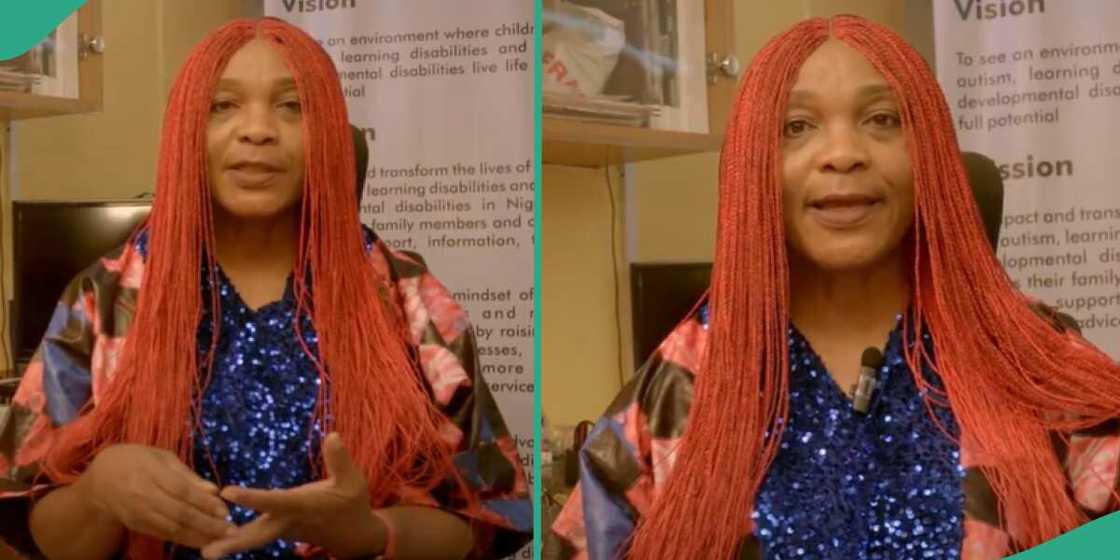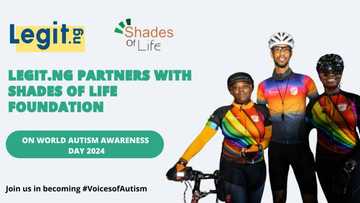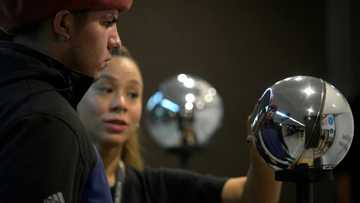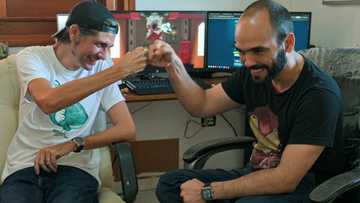"Help Us Spread The Word": Autism Expert Bemoans Lack of Media Support in Sensitising Nigerians
Perhaps, one of the most difficult neurological disabilities to manage is autism. However, it is more difficult to manage when those around the autistic person do not know what they are managing.
PAY ATTENTION: The 2024 Business Leaders Awards Present Entrepreneurs that Change Nigeria for the Better. Check out their Stories!
Understanding that a child on the autistic spectrum is the first step to properly managing it. Just like in the field of medicine, not getting a proper diagnosis and accurate information about a disease could lead to mistreatment or even death; in the same manner, not knowing that a child has autism spectrum disorder and what level it is could lead to negative tagging, confusion for parents and stigmatisation from those around the child.

Source: Original
For parents or caregivers, caring for a child on the autism spectrum is often a heavy burden, but it is more burdensome when there is a lack of understanding of the condition. Some parents do not know that their child is presenting symptoms of autism. In many countries, such as Nigeria, there is little awareness of autism. Due to a paucity of enlightenment and a total lack of a system structured to cater for autistic people, family members who can't connect the dots often label autistic children as being possessed.
There is lack of awareness about autism in Nigeria
An article written by Okey-Martins Nwokolo and published in Autism Around The Globe website in 2010, highlights the lack of awareness on the topic in Nigeria.
Nwokolo, a psychologist, wrote:
"The situation in Nigeria seems to hark back to pre-1943 America, when children with autism were thought to be schizophrenic or mentally retarded, and when maternal deprivation and spiritual causation held sway as explanations for its cause. In many parts of Nigeria today, particularly in rural areas, people with autism are thought to be possessed or evil.
A research paper published in 2008 on the National Library of Medicine website by Bakare et al notes that:
"Knowledge and awareness about childhood autism is low among."
healthcare workers working at the community level in Nigeria”
The media shares part of the blame
A large chunk of the blame for a lack of awareness about autism in Nigeria should go to the mass media, according to Dr Eziafakaku Nwokolo, the founder of Shades of Life Care Limited and Shades of Life Foundation, two organisations dedicated to caring for people living with autism and also spreading awareness about the condition.
Dr Nwokolo, who has become an expert in the field, told Legit.ng during a question-and-answer session that the media is not helping in the way it should. According to her, enlightening people about autism is not a one-off thing but a continuous effort that must be kept burning.
She insisted that the media has a huge role to play in helping parents, medical professionals and the society at large to understand autism.
She said:
"You look for correct professionals and give the audience. It is not just for the media to be giving fashion and swimming pool columns. If you have a section that you dedicate to information dissemination (about autism) and people keep reading it, you will be amazed at the number of people who would begin to look forward to it and pass it on to people. That is why we have taken to social media platforms because people interact on different platforms. We use as many social media platforms as possible to put out information. But there is still a generation that wants to pick up a newspaper to read. So, whatever would help, we want to be there putting out information because people don't know. There is no understanding, no awareness whatsoever."
Apart from poor media coverage of the topic, Dr Nwokolo mentioned that there is also a lack of accurate data on people who may be living with autism in Nigeria, citing the research work by Bakare et al.
Her words:
"Unfortunately, we also don't have suffidient data in Nigeria. So, when you are talking about a percentage of this or that, we can't because it's what you are interested in that you collate data on. So, part of what we are doing at the foundation is the research work so that we can even begin to contribute towards this data. All the people that I diagnosed, we sort them out based on age group and begin to have some sorts of data."
The need to understand autism
Although Dr Nwokolo said there was nothing wrong in praying for people living with autism, she insisted that there has to be an understanding of the condition first. She noted that praying for people who do not understand what problems they have is not the way to go.
She said:
"We are even taking the campaign to churches, mosques and worship centres. We done have one church, and we are getting ready for the second one. I'm a Christian, and I pray. We all 'kabash' and everything, but at the end of the day, if you don't know what you are praying about, what are you 'kabashing' for?"
She consistently pointed out the need to properly understand what autism is before taking steps to care for those living with the condition.
"So, my point is, if you don't understand something, you give it a name. We have been given the power to name anything. Imagine a 3-year-old, who is not potty-trained, who is not talking, who is holding their head and rocking or sometimes spinning themselves around or just clapping their hands and making noise. Won't you say it's a spiritual problem? All you have to do is to understand. Do an assessment, do a diagnosis, start doing behavioural intervention so that you can teach that individual replacement behaviour."
Dr Nwokolo invited the media and the public in helping to sensitise society about autism.
Her words:
“Now, more than ever, We invite everyone to join us in this and be a part of something truly transformative. Whether through volunteering, donations, or simply spreading the word, every act of support is a step towards creating brighter futures for our population”
PAY ATTENTION: Donate to Legit Charity on Patreon. Your support matters!
Source: Legit.ng






